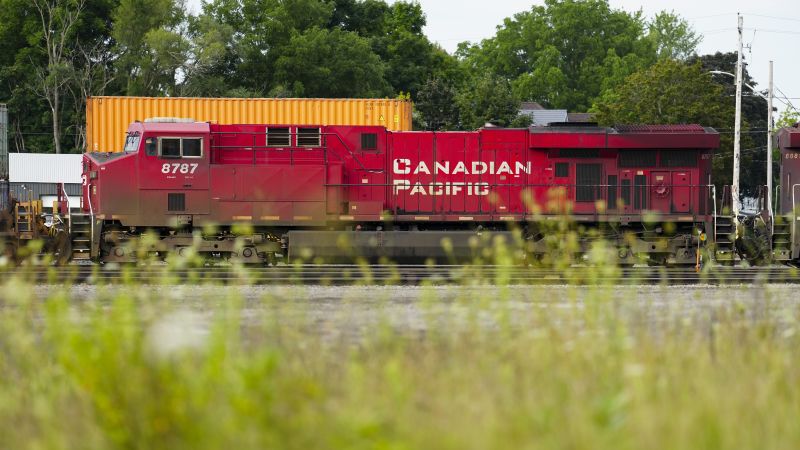Canadian Labor Minister Steve MacKinnon ended the shutdown of Canada’s two major freight railroads by referring the labor dispute to binding arbitration. The Canada Industrial Relations Board will help settle the outstanding terms of collective agreements and extend the current agreements until new ones are signed. This move is a victory for Canadian National and Canadian Pacific Kansas City Southern, who had been forced to shut down their networks due to an impasse with the Teamsters union representing 9,000 workers. MacKinnon emphasized the government’s duty to ensure industrial peace in this critical sector.
The union had advocated for reaching an agreement at the bargaining table but faced setbacks as the government intervened with binding arbitration. The railroads denied union claims of greed and safety concerns, while business groups in both Canada and the US called for government action to prevent economic damage from the rail shutdown. With about 30% of freight crossing the US-Canadian border, a prolonged stoppage could have impacted various industries, including the US auto industry and agriculture sectors dependent on Canadian goods.
The shutdown highlighted the close economic ties between Canada and the US, emphasizing the need for efficient cross-border movement of goods. The governments of both countries played roles in mediating the dispute to prevent further disruptions and economic repercussions. This was the first time both major Canadian railways ceased operations simultaneously due to a labor dispute, indicating the significance of the situation. Previous work stoppages in the industry, such as the 2019 strike at Canadian National and a 60-hour strike at Canadian Pacific in 2022, served as precursors to the recent dispute.
MacKinnon’s decision to intervene in the labor dispute through binding arbitration signified the government’s commitment to maintaining stability and peace in the vital rail sector. The impact of the shutdown extended beyond the railway industry, affecting various sectors dependent on the movement of goods across the US-Canadian border. The role of government intervention in resolving the dispute emphasized the interconnectedness of the economies of both countries and the need for cooperation to ensure smooth operations in critical industries.
As the situation continues to develop, updates on the resolution of the labor dispute and the resumption of rail operations will be monitored. The collaborative efforts of the government, railroads, and the union will play a crucial role in reaching a mutually agreeable solution that addresses the concerns raised by all parties. The implications of the shutdown on businesses, industries, and cross-border trade underscore the importance of actively managing labor disputes to prevent widespread economic disruptions and ensure the continued flow of goods and services across international borders.


